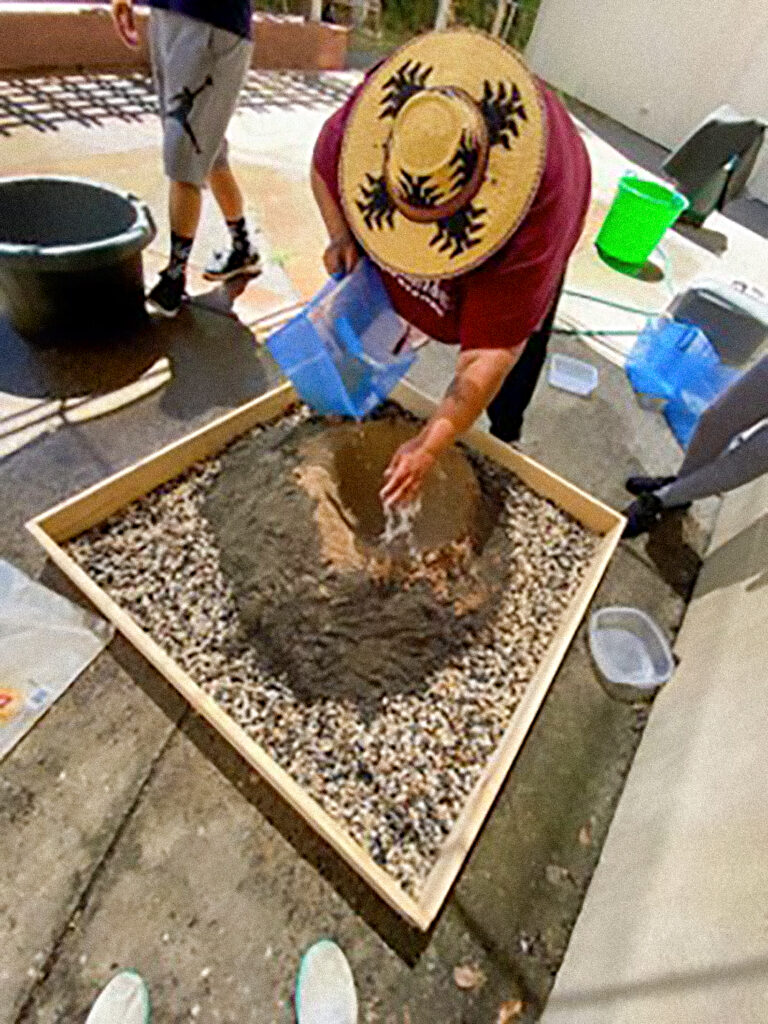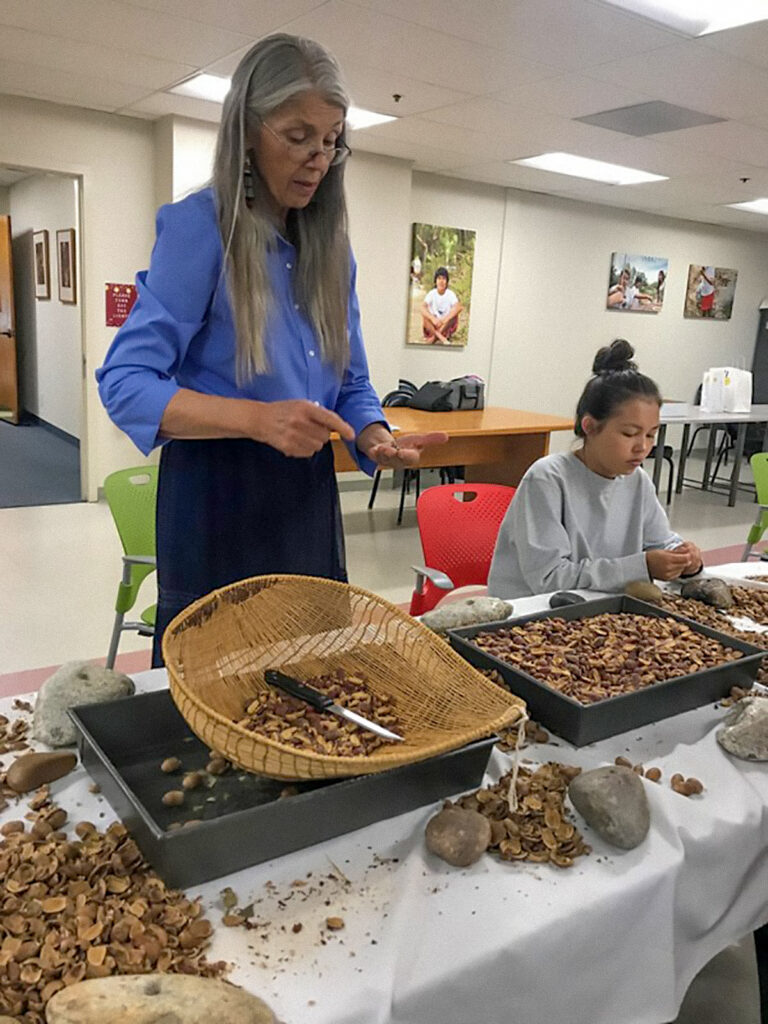Reclaiming Tradition Through Food Sovereignty.
Sonoma, Mendocino, and Lake counties share the ancestral territory of Pomo, Miwok, and Wappo Peoples. Today, we are working to reclaim the health of our people and homelands through the food sovereignty efforts of cultivating and harvesting our traditional foods. Food sovereignty is the inherent right to access traditional foods and resources, without any GMOs, or pesticides.
For thousands of years, Bu-du, or acorns, have been an important food to the majority of California Indian Peoples. As a staple food source, acorns figured prominently in the diets and daily lives of countless generations. Hundreds of years later, despite catastrophic demographic collapse, removal from ancestral lands, and vast environmental change, California Indian Peoples continue to consider acorn use important in maintaining their health and sustaining their cultural identities.
Prior to colonization, acorns were eminently suitable as a food resource because of their availability, productivity, storability, and nutritional content. Anthropologist Alfred Kroeber estimated that more than 75% of native Californians relied on acorns for food on a daily basis. In all, 18 species of oak, including shrubs and trees, are distributed throughout the state of California.
The nutritional value of acorns is high, and depending on the species, acorns can contain up to 18 percent fat, 6 percent protein, and 68 percent carbohydrate, with the remainder being water, minerals, and fiber. In comparison, modern varieties of corn and wheat have about 2 percent fat, 10 percent protein, and 75 percent carbohydrate. Acorns are also good sources of vitamins A and C and many essential amino acids.
Acorns require Traditional Ecological Knowledge (TEK) to be consumed by humans. For generations, Pomo, Miwok, and Wappo people have passed down a series of harvesting, winnowing, pounding, sifting, leaching, along with boiling techniques and tools to facilitate consumption and production of acorn flour. Acorn flour makes a rich glutinous food and contains a surprisingly large quantity (18 to 25 percent) of nut oil of obvious nutritive value1. Acorns are also highly nutritious, and flours made from them, like other nut flours, are gluten free. A pound of shelled acorns yields 1,265 calories, and the nuts are high in carbohydrates, fat, vitamin B6, magnesium, potassium and calcium2.
The American Indian diet has changed dramatically. The colonized diet is known to be a contributing risk factor to diabetes, obesity, and cardiovascular disease. Current foods eaten by American Indians contain more fat, sugar, preservatives, and artificial ingredients than our traditional foods. But accessing our traditional foods is not so simple. Access to land to steward and harvest these resources is essential to reclaiming these traditions. A regular diet of native and natural foods will help American Indians prevent and control many of today’s chronic diseases3.
Support your local food sovereignty campaigns. Our shared community and landscapes will benefit from the health and vitality of native ways of knowing.
Acorn Brownies
from Vincent Medina (Ohlone)
Ingredients
• 1/2 cup of acorn flour; leached
• 1/2 cup of whole wheat flour
• 1/2 cup of melted butter
• 2 cups of sugar
• 4 ounces unsweetened baking chocolate
• 2 eggs
• Pinch of salt
• Optional: nuts to add to mix
Directions
1 Preheat oven to 325 degrees.
2 In a large saucepan, heat butter and chocolate together until both are melted together; turn heat off once melted entirely.
3 Add acorn flour, whole wheat flour, eggs, salt, sugar, and optional nuts to butter and chocolate. Mix thoroughly.
4 Spread brownie mixture onto a well-greased baking sheet.
5 Bake for 30 minutes.
6 Let cool for 5 minutes, cut into squares, and enjoy!
This recipe appeared in News from Native California, March 16, 2016
newsfromnativecalifornia.com/acorn-brownies-say-what/
Looking to learn more about acorn production?
youtube.com/watch?v=uicKpgWEsxo
1 (Merriam, H.C., (1918)
2 (Edible Monterey Bay, (2015) Roadside Diaries: Acorns.)
3 (Kennedy, S., (2005) California Food Guide: Health and Dietary Issues Affecting American Indians.)
About the Author:

Nicole Lim is the executive director of the California Indian Museum and Cultural Center (CIMCC). She is working to establish a Traditional food incubator at the museum and advocates for food sovereignty and ancestral gathering rights for California Native people. CIMCC’s work will be featured in the forthcoming book by Sean Sherman (The Sioux Chef), Turtle Island: Foods and Traditions of Indigenous Peoples of North America.
For more information about CIMCC food sovereignty efforts, visit cimcc.org and acornbites.com.


